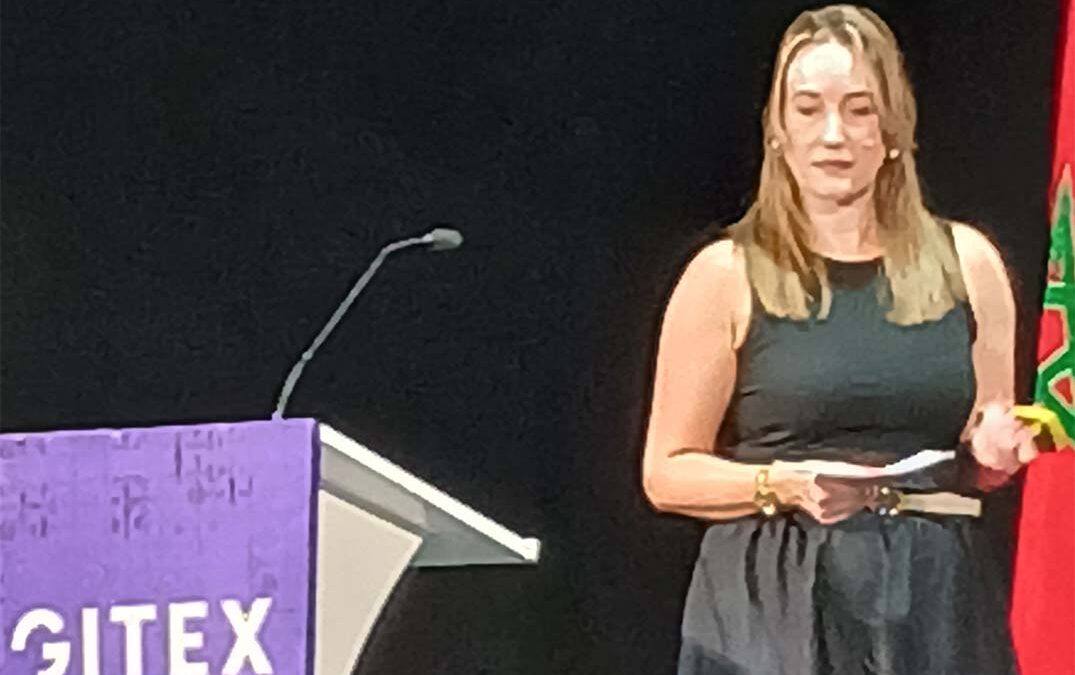Kathy Gibson reports from Gitex Africa Morocco 2024 –Cyber scams worldwide have cost more than $55-million and impact everyone, at all levels of society. But we still don’t have systems in place to effectively help the victims.
One of the world’s best-known scam victims is Ayleen Charlotte, who has coped with her experience as a victim of the “Tinder Swindler” by becoming an anti-fraud activist in the Netherlands.
“I want to break down the shame and taboo on fraud,” she says.
Because this is the ugly reality of fraud: too often the victim is blamed, while the fraudsters not only walk free but are able to continue perpetrating their frauds against other people.
“I want companies and agencies to learn from my story to help them detect and prevent fraud – and to deal with actual victims,” Charlotte says.
She relates the story of how she lost all her money and put herself into debt for the man she believed was the love her life.
Charlotte met a man on Tinder who looked like the perfect match – and for months he was indeed an ideal boyfriend. He was smart, interested and attentive, and she fell in love with him.
“We had fun together, and shared our deepest thoughts.”
Through his father, this young man purported to be the CEO of a diamond company. Because of his position, he said he had made some enemies. When a business deal broke down, he told Charlotte that these enemies were targeting him.
“He told me that he needed a safe place to live, and a credit card not in his name.
“Of course, I offered for him to move in with me, and gave him a key to my house. I also gave him access to my credit card and to all my savings.”
He wrote Charlotte a cheque to cover these amounts, and said she could deposit it as soon as a certain business deal came through.
“Why wouldn’t I believe him?” she asks. “He had already been my boyfriend for 10 months.”
To cover the debts he was building up on Charlotte’s credit card, she took out two personal loans for a total of 60 000 Euros.
“He told me he was working on getting the money to pay me back, but these operations all failed.
“After a while, his stories started becoming less believable, and after a few months of this stress I started getting mental health issues, anxiety and constant anger.”
Charlotte relates that she had done online searches on this man prior to getting involved with him, none of which turned up anything suspicious.
“But then one day his face turned up on my Instagram feed. I clicked on the picture, and an article about him as the Tinder Swindler came up.
“It turned out that, while we were in a relationship, he had been dating two other girls who were defrauded and lost money.”
Charlotte was devastated. “I was in deep trouble in all areas, and from the love of my life he had become the most horrible part of my life.”
But realising she had been defrauded was just the start of her problems: getting anyone in authority to take up her case proved almost impossible.
“The most painful thing was being sent away; when trying to report the crime to find there is no-one who stands beside you.”
She first reported the crime to her local police station. Despite being sympathetic, they were not able to pursue the case and advised her to report it at a different station.
This station also decided they couldn’t take the case, as it was of too international a nature for them to proceed.
After several months, Charlotte eventually got in touch with the Netherlands financial investigations team. They were already familiar with the fraudster, who is now known to have defrauded more than 30 individuals and companies. And he is still at large.
“It took me more than 11 weeks to file the case: months of fraud, mental abuse, manipulation and financial losses.”
Because the fraudster didn’t let being unmasked stop him: he was still in contact with Charlotte and trying to get even more money from her. “He even suggested that I sell my house and car.”
During this process, there was no-one to support her, Charlotte says, despite dealing with an many as seven different authorities.
“Organisations should stand beside you against fraud. But most of the time, they don’t know what to do when an actual victim gets in touch.
“Even listening to the story made a lot of people uncomfortable.”
The most common response that Charlotte got was that she was responsible for paying back the money since she had given it to the fraudster voluntarily.
“It was even suggested by one organisation that I sell my house to settle the debts.”
Charlotte is calling for better systems to be put in place to help the victims of fraud. “We need answers, guidance and real action. By blaming the victims of fraud, we let the criminals win.
“A scam can happen to any of us. When it does, it is essential that the criminal is blamed, not the victim. They deserve the same support and guidance as any other crime victims.”

